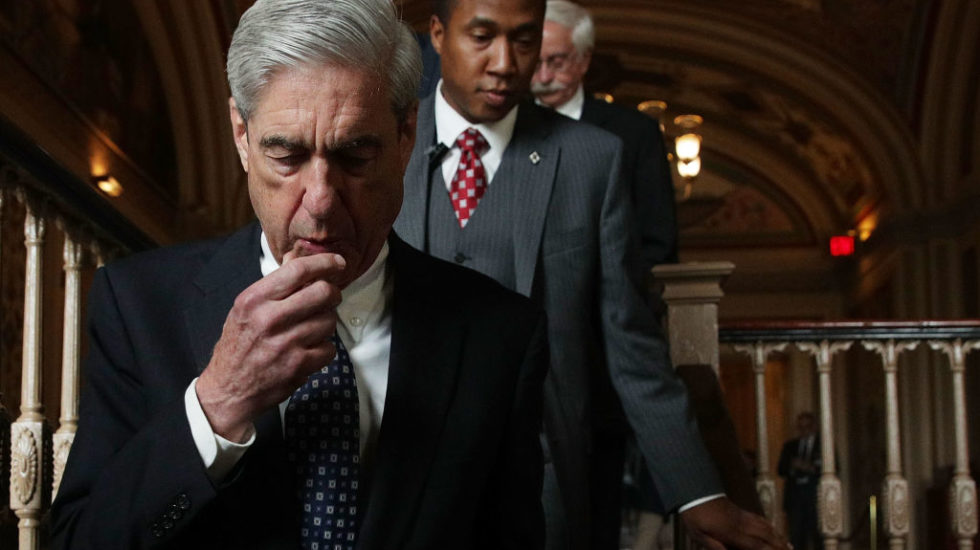Special Counsel Robert Mueller delivered his long-awaited report on Russian interference in the 2016 election on Friday. The report was delivered to newly-confirmed Attorney General William Barr, who will decide how much—if any—of the report to make public.
Now what happens?
• Is there a timetable for Barr’s decisions on release of some or all of the report?
There is no timetable mandated by statute; expect political pressure from Democrats (and some Republicans) in Congress—particularly, the House of Representatives, where Democrats hold the majority—to hold Barr’s feet to the fire. Barr has signaled in a letter to Congressional Judiciary Committee chairs and ranking members that he may brief them on the report’s principal findings as soon as this weekend. Barr added that he “remain[s] committed to as much transparency as possible….”
• What if Attorney General Barr decides to release none of it or only a heavily edited version? What can Congress do?
Immediately after the report’s release, House Speaker Nancy Pelosi and Senate Minority Leader Charles Schumer issued a joint statement calling on Barr to make the full report public and to release its underlying documentation to Congress. “The American people,” the statement concluded, “have a right to the truth. The watchword is transparency.”
Senator Dianne Feinstein, Ranking Member of the Senate Judiciary Committee and one of the addressees of Barr’s letter, wrote in February that she wants Congress to see the whole thing, stating that “Congress has a clear interest in obtaining the special counsel’s full report, supporting materials and all the facts and evidence surrounding the numerous investigations into President Trump, his associates and his campaign.”
And should Barr withhold the report, Adam Schiff, Chair of the House Intelligence Committee, told ABC’s This Week in February that “…we will obviously subpoena the report, we will bring Bob Mueller in to testify before Congress, we will take it to court if necessary. And in the end, I think the department understands they’re going to have to make this public.”
• What if the Attorney General were to refuse to recognize a Congressional subpoena for the report or underlying documentation?
Contempt of Congress charges are unlikely for the Attorney General, since the most common route for Congressional contempt referrals goes through the U.S. Attorney for the District of Columbia—in other words, one of Attorney General Barr’s subordinates. There are other potential routes—including the intriguing possibility of making a referral directly to Mueller—but the most likely outcome would be a federal court challenge, which would likely end up quickly in the U.S. Supreme Court.
• Does the release of the report mean there will be no new indictments connected to Mueller’s investigation?
Various reports indicate that there will be no more indictments coming directly from Mueller and that there are no remaining sealed indictments from Mueller. It is possible, however, that ongoing criminal proceedings initiated by Mueller or referrals made by him to various U.S. Attorneys’ offices could still yield criminal charges.
• So what happens with the cases Mueller referred to U.S. Attorney’s offices such as the Southern District of New York, Eastern District of Virginia, and the District of Columbia?
A number of these investigations remain ongoing—sentencing for Maria Butina, for example, the Russian national who pleaded guilty to conspiring to infiltrate conservative political circles on behalf of the Kremlin, was delayed in February because she is still working with federal prosecutors in Washington, DC—and may well result in additional indictments. And just as Mueller’s core prosecutorial work led him to other investigative avenues, the cases referred to other federal attorneys’ offices could expose Trump and his businesses to additional legal jeopardy; unlike Mueller, the prosecutors working in these offices are not constrained by a limited mandate—which is why former New Jersey Governor (and federal prosecutor) Chris Christie and former U.S. Attorney for the Southern District of New York Preet Bharara (who was fired by Trump) are among those who have noted that the SDNY poses a greater risk to Trump than Mueller.
• What, if anything, does the release of the report have to do with potential impeachment proceedings against President Trump?
Directly, if Mueller found that the president had committed a crime or crimes, current Justice Department policy is understood to hold that a sitting president cannot be indicted. Which would leave Mueller to make a referral to Congress recommending impeachment proceedings; some, however, interpret the special counsel statute as mandating that the referral would need to come from Attorney General Barr.
Less directly, Congressional Democrats’ public messaging, from Speaker Pelosi on down, has deferred the question of impeachment until Mueller issues his report. Now that it’s in, it could well trigger impeachment hearings on subjects directly covered by Mueller in his report and a host of other potentially impeachable offenses unrelated to the probe.
Mueller’s investigation has come to an effective close and one thing you can bank on is: get ready for a whole lot more Congressional hearings and legal proceedings on the federal and state levels. Which is why many legal observers are calling today’s report just the beginning of the president’s legal woes.



